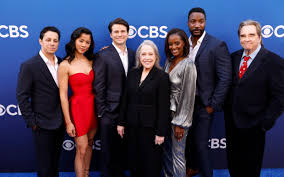
The faint, almost imperceptible hum of a dial-up modem, the soft rustle of a Sunday newspaper, the comforting drone of a legal procedural where justice, like a well-worn cardigan, always fit just right. That was the world of Matlock. Ben Matlock, a man whose folksy charm belied a razor-sharp legal mind, always got his man (or woman), usually with a neatly packaged confession wrung out in a sun-drenched courtroom. It was a universe of gentle logic and predictable morality, a balm for the soul in an increasingly complex world.
Then, the internet happened. And with it, the headline: “Who the Hell Are You? Matlock Creator Answers Key Questions From Finale, Teasing Season 2.”
The words hit like a cold splash of kombucha on a warm, familiar tweed jacket. "Who the Hell Are You?" is not a question Ben Matlock ever posed to a witness. Nor was it, one might surmise, ever screamed at him by a disgruntled juror. It’s a primal, aggressive query, dripping with modern angst and existential dread. It’s the cry of the disenfranchised, the bewildered, the man caught in a rain-slicked alley, not the genial lawyer calmly unraveling a probate dispute in Mayberry-adjacent Georgia. This single phrase, anchoring the entire premise, illustrates not just a reboot, but a cultural cataclysm.
Imagine the scene: not a sun-dappled courthouse, but a dimly lit, industrial-chic loft. The "Matlock Creator" – let’s call them River, with an asymmetrical haircut and an artisanal coffee – leans into the webcam, a carefully curated backdrop of vintage synthesizers behind them. River is addressing a barrage of questions that would make the original Ben Matlock choke on his hotdog.
"The finale," River explains, eyes gleaming with intellectual fervor, "was about deconstructing the patriarchal gaze of the justice system. When Matlock uttered that line – 'Who the hell are you?' – it wasn't just a challenge to the masked assailant. It was a question directed at his own internalized notions of morality, his own complicity in a system designed to oppress."
Here, the illustrative power of the new Matlock lies in its stark contrast. The "masked assailant," for starters. In the original, the closest Matlock came to a masked figure was a witness in a ski mask, likely a comedic misunderstanding. Now, we’re talking about actual shadowy figures, possibly tied to a vast conspiracy, perhaps even challenging Matlock’s very identity. The "key questions from the finale" are no longer about who poisoned the peach pie, but about the systemic corruption that allowed the governor to walk free, or the ambiguous parentage of Matlock's estranged, tattooed hacker granddaughter.
"We had to go there," River continues, gesturing with a hand adorned with intricate silver rings. "Audiences today demand authenticity. They want to see Matlock grapple with his privilege, his past ethical compromises. Was his pursuit of justice truly altruistic, or was it a coping mechanism for the trauma of losing his first wife in a still-unsolved cold case? The finale leaves us questioning everything."
The original Matlock finale was likely just another case neatly tied up with a bow, perhaps Ben Matlock enjoying a good meal. But the new "finale" clearly plunges us into a labyrinth of unresolved plot threads, moral relativism, and personal demons. We're not asking who did it, but why are we even bothering with a system so broken? And who is Matlock, really, when stripped of his comforting veneer? The creators, in their earnest desire to be relevant, have taken a sledgehammer to the very foundations of the show's appeal.
And then, the tease for Season 2: "We're going deeper into Matlock's psyche. We’re exploring his addiction to justice, his fractured relationship with his son (who may or may not be involved in a dark web cartel), and the possibility that the entire legal framework he’s built his life upon is a lie. Expect more ambiguities, more moral grey areas, and a definitive answer to who, indeed, the hell Matlock is."
This illustrative snippet captures the essence of modern television: a relentless pursuit of "darker themes," "complex characters," and an overarching narrative that demands constant theorizing. The comforting, episodic rhythm of the original is replaced by a serialized saga designed to keep us hooked, not by simple whodunits, but by existential crises. The irony is, in attempting to answer "Who the Hell Are You?", the show might inadvertently provoke the same question from its bewildered legacy audience, wondering where their gentle, hotdog-loving lawyer went. The new Matlock creator isn't just teasing a second season; they're illustrating the stark, often hilarious, chasm between nostalgia and the relentless demand for reinvention in the unforgiving landscape of contemporary television. And in that chasm, perhaps, lies its own peculiar, unsettling form of justice.
